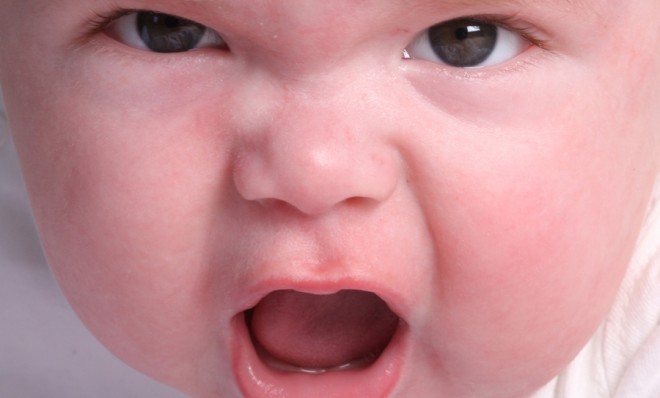Proof: Babies can be jerks
Those mean girls might have been mean infants too, new research says


A free daily email with the biggest news stories of the day – and the best features from TheWeek.com
You are now subscribed
Your newsletter sign-up was successful
The question: It's human nature to want to hang out with people you have things in common with. ("You like chocolate-peanut-butter ice cream? So do I! Let's eat chocolate-peanut-butter ice cream together!") On the one hand, this trait is a positive one, since it helps people form social bonds. On the other, those shared interests can, at the very least, lead to the formation of cliques that exclude others for their differences. Worse yet, groups may reach the point at which they applaud when harm comes to outsiders — just think of the mean girls in high school who revel in others' pain. Researchers already knew, thanks to previous studies, that babies, like adults, had the propensity to like babies similar to them, gravitating toward those with the same taste in food or toys. But scientists wanted to examine whether the dark side of social identification was prevalent in babies as well. Do the roots of malevolent social biases take hold in infancy?
How it was tested: Researchers recruited 9- and- 14-month-old babies for two separate studies. First, the infants' preference for green beans or graham crackers was established. Then the babies watched a series of puppet shows that featured a graham cracker-liking puppet and a green bean-liking puppet alternately being helped and harmed by other puppets. Finally, the babies chose between the helper puppet or the harming puppet.
The outcome: With combined samples of more than 200 infant participants, researchers found that both age groups overwhelmingly preferred the character that helped the puppet similar to them, over the character that harmed the similar puppet. But, surprisingly, when it came to the puppets that were dissimilar to the infants, the majority of babies in both age groups opted for the character that harmed them. In fact, their preference for the harming character, in the dissimilar scenario, was just as strong as it was for the helping character in the similar scenario. When the study was conducted again, this time with the addition of a neutral puppet, researchers found that the older group responded even more robustly to the harmer puppet.
The Week
Escape your echo chamber. Get the facts behind the news, plus analysis from multiple perspectives.

Sign up for The Week's Free Newsletters
From our morning news briefing to a weekly Good News Newsletter, get the best of The Week delivered directly to your inbox.
From our morning news briefing to a weekly Good News Newsletter, get the best of The Week delivered directly to your inbox.
Why this might be: The fact that babies act this way even before they can speak suggests that social biases "are based in part on basic aspects of human social evaluation," rather than learned through interacting with others. In other words, our social biases might be more nature than nurture.
What the experts say: The results are disheartening, says Karen Wynn, senior author of the study and professor of psychology and cognitive science at Yale University. "I was surprised, and my liberal bleeding heart sunk like a stone when we found them actual choosing, really robustly, the puppet who punishes." Wynn says there's need for more research, however. For one, the reasons behind the babies' choices are still unknown. Also, the babies might react differently if a parent or loved one cares for the dissimilar puppet.
But in the meantime, we'll leave you with this disheartening thought: Babies are kind of evil.
A free daily email with the biggest news stories of the day – and the best features from TheWeek.com
Lauren Hansen produces The Week’s podcasts and videos and edits the photo blog, Captured. She also manages the production of the magazine's iPad app. A graduate of Kenyon College and Northwestern University, she previously worked at the BBC and Frontline. She knows a thing or two about pretty pictures and cute puppies, both of which she tweets about @mylaurenhansen.
-
 Why is the Trump administration talking about ‘Western civilization’?
Why is the Trump administration talking about ‘Western civilization’?Talking Points Rubio says Europe, US bonded by religion and ancestry
-
 Quentin Deranque: a student’s death energizes the French far right
Quentin Deranque: a student’s death energizes the French far rightIN THE SPOTLIGHT Reactions to the violent killing of an ultraconservative activist offer a glimpse at the culture wars roiling France ahead of next year’s elections
-
 Secured vs. unsecured loans: how do they differ and which is better?
Secured vs. unsecured loans: how do they differ and which is better?the explainer They are distinguished by the level of risk and the inclusion of collateral
